Manufacturing the News and Nuclear Power
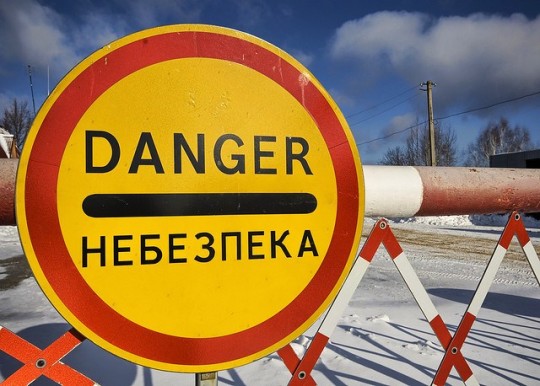 The news that people see is not really the full news but a biased portrayal of current stories aimed at conditioning the wider public to accept gross inequities without question. Regular readers of News Junkie Post will be aware that it breaks stories that cannot be found in the mainstream. This is because the mainstream media are owned by people with a particular agenda: people who do not want the general public to become aware of any proper news that is contrary to the agenda. To push forward this agenda, the mainstream media also manufacture stories. A recent example may be found in the proposed construction of a new nuclear power station on the Somerset coast at Hinckley Point.[1]
The news that people see is not really the full news but a biased portrayal of current stories aimed at conditioning the wider public to accept gross inequities without question. Regular readers of News Junkie Post will be aware that it breaks stories that cannot be found in the mainstream. This is because the mainstream media are owned by people with a particular agenda: people who do not want the general public to become aware of any proper news that is contrary to the agenda. To push forward this agenda, the mainstream media also manufacture stories. A recent example may be found in the proposed construction of a new nuclear power station on the Somerset coast at Hinckley Point.[1]
The BBC’s announcement of the construction of a new nuclear power station is part of the mainstream media’s agenda. The French company to whom the contract has been granted, Electricité de France (EDF), cannot just start construction without local people asking questions. What is more likely to be manufactured news came shortly afterwards: two days after the BBC story came a further announcement that Sellafield nuclear power station in Cumbria was being shut down on safety grounds due to weather conditions.[2] Two nuclear power-station stories in a week is a bit suspicious even for those who accept the news as presented. Although there had been an unseasonal fall of snow for March, it had been no different, in fact less severe, than many other wintry snowfalls when the power station was not closed. The timing of this Sellafield story seemed incredible, coming directly after the announcement of a new nuclear power station; the story reeked of being a bit too much of a coincidence. To anybody used to reading between the lines, it is unlikely that the closure was simply due to snow. So what was the story’s purpose?
The plan, or hidden agenda, if followed through might have been to deprive households over a large area of northern England of their electricity during a cold spell. Had the closure lasted, there was a high probability that families would have been left without heating or lighting just to prove how dependent we really are on nuclear energy. This is one possibility. The other is to demonstrate how safety-conscious nuclear facilities are – all of a sudden. The shut down came two days after the announcement of a new plant, yet Sellafield has never closed down because of weather. The only reason nuclear plants shut down is for accidents, or perhaps maintenance. Accidents are different. There was an accident in 1957, which pushed the Cumbrian poet Norman Nicholson to pen these apposite lines:
This is a land where dirt is clean,
And poison pasture, quick and green
And storm sky, bright and bare;
Where sewers flow with milk, and meat
Is carved up for the fire to eat,
And children suffocate in God’s fresh air.[3]
At the time of that leakage, Sellafield did not exist. The plant on the site was known as Windscale, as is Nicholson’s poem. The new facility at Sellafield got a new name to ensure that a gullible public, and those born after 1960, would not associate the Windscale disaster with the Sellafield nuclear power station. Nobody names a ship Titanic any more. Today Windscale is hardly ever mentioned, and new generations are oblivious to the accident, except for those who have learned of it from family members or read about it elsewhere. The incidence of childhood leukemia in the area is still up and the highest in the country. Despite a German study’s link of leukemia to nuclear power plants, a study commissioned by a government advisory committee found no such link.[4]
More recent disasters, like those at Chernobyl and Fukushima, are rarely mentioned when new nuclear power stations are proposed; so presenting a safety facade is essential. What is mentioned is how efficient nuclear energy is. Safety must be a key factor in selling nuclear power to consumers who are increasingly aware of its dangers after those major-scale disasters. Nuclear plants are also needed to produce the latest range of nuclear weapons, which is never mentioned. The irony is that these weapons can penetrate nuclear plants. Think about it: no shut down of Sellafield due to the weather for decades, then one in the same week that a new facility is announced. This must be manufactured news, funded by those most likely to gain financially from the construction of yet another potentially-lethal power plant. Sellafield is being decommissioned. There was an accident: a more recent leak than the Windscale disaster at the Thorp facility in 2005 closed the plant for nearly two years.[5]
The manufactured news did not end with the Sellafield shut down. Within three or four days, a second major ‘manufactured’-energy story hit the headlines. This time it concerned a supposed depletion in the UK’s gas reserves. The purpose of this was to show how we cannot rely on gas. Energy users, who have faced year on year increases in bills, are being asked to believe that the country could be running out of gas – which of course ultimately it is – but the article meant imminently. The prediction on Sunday March 24 was that only 1.4 to 3 days of gas reserves were left, and the United Kingdom had the lowest reserves in all of Europe. All stories mentioned how expensive gas is and how rationing might have to be introduced. At the same time, the general public was asked to accept that there will be increased energy bills again next winter.[6]
In reality, the main problem is that all our energy suppliers are privately-owned conglomerates for whom profit — no let that be greed — is the main motivating factor. Increased profit equals increased bills. There are supposed to be ombudsmen to make sure that consumers get a fair deal. Where and when have customers experienced a reduction in bills? Private energy companies have a responsibility to shareholders that supersedes any responsibility to customers, despite the customers being the ones who pay the extortionate bills. There used to be an economic saying that “the customer is king,” meaning that customers could take their business elsewhere for a better deal. Price fixing and energy cartels have eliminated customer choice.
There was a time in the UK when energy bills rose in proportion to increases in wages and salaries, when families could afford to pay for essential services without undue strain on the rest of the family budget. That was back in the happier days when utilities were publicly owned. Back then, when work needed doing, it was done because the driving force was not profit but safety and the delivery of a responsible service. In our stringent days of private ownership, the average family is crippled by energy bills. Water leakages are ignored for decades. When in dry spells the country sees its water reservoirs fall to their lowest ever levels, this is blamed on increased consumption. Privately-owned industries have no motivation to locate and repair the leaks. Instead hosepipe bans are imposed on householders because this is a much cheaper option than fixing the leaks and does not impinge on profit.
As with water, gas, and other essential industries, the new proposed nuclear power station will also be in private hands. This does not augur well for public safety or the family purse. Shareholders of private companies are not concerned about safety so much as profit, knowing as they do, that while the cash keeps coming in, their lives could not be sweeter. If later something goes badly wrong, like the Fukushima disaster, they can move their money and profits elsewhere, with the added consolation that the taxpayer, as usual, will pick up the bill. That is what happened with banking. There is no possibility with a Conservative, Labor or Liberal government that service industries will return to public ownership. They no longer believe in public ownership. Greed cracks the government whip.
References
[1] http://www.bbc.co.uk/news/uk-21839684
[2] http://lakelandradio.co.uk/2013/03/bad-weather-forces-sellafield-shutdown/
[3] Nicholson, Norman, A Local Habitation, Faber & Faber, London, 1972, p. 31.
[4] http://www.guardian.co.uk/environment/2011/may/06/nuclear-power-leukaemia
[5] http://en.wikipedia.org/wiki/Sellafield
[6] http://peakoil.com/consumption/could-uk-face-gas-rationing-british-gas-reserves-could-run-dry-in-36-hours and http://www.independent.co.uk/news/uk/home-news/britain-faces-the-prospect-of-gas-rationing-for-the-first-time-8544975.html
Editor’s Note: All photographs by Trey Ratcliff.
Related Articles


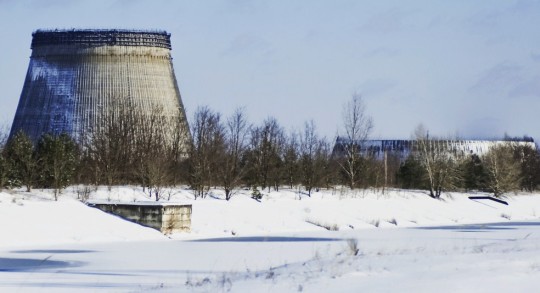
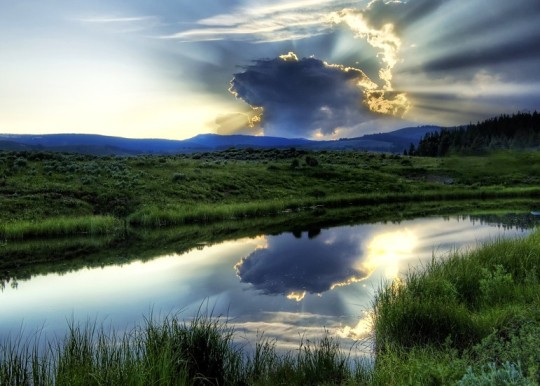
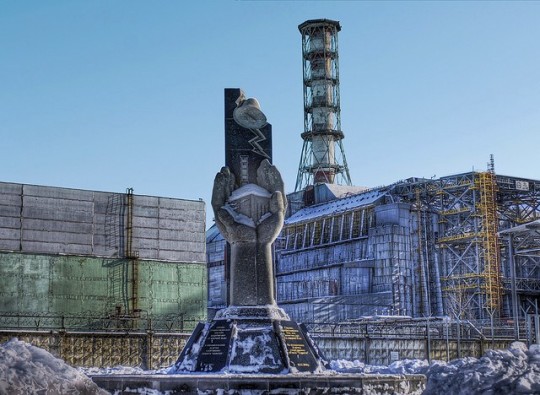
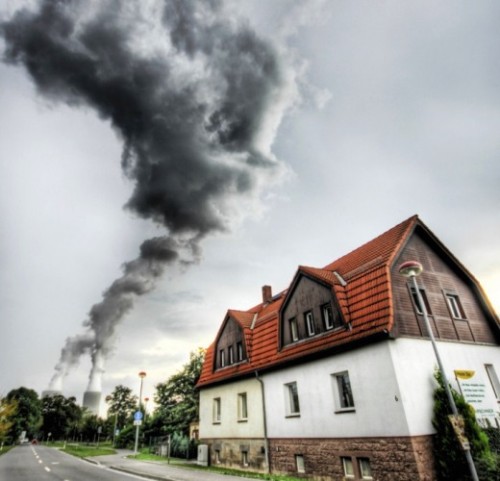
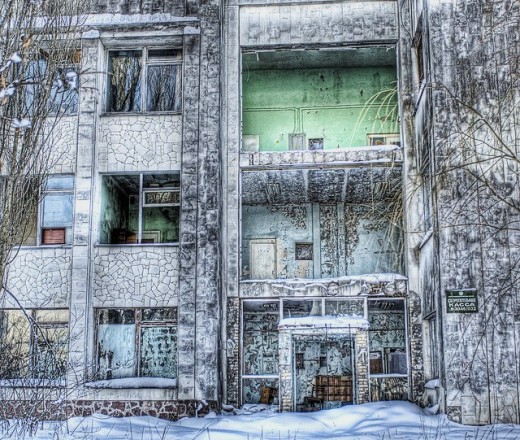
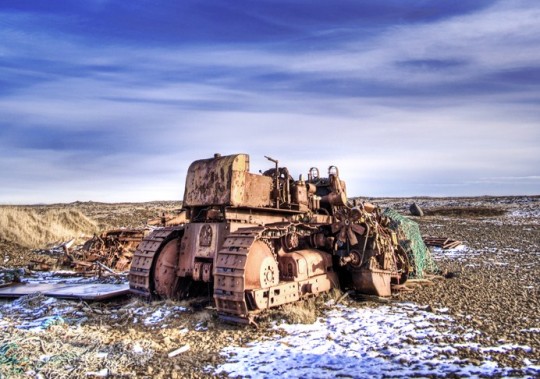











6 Responses to Manufacturing the News and Nuclear Power
You must be logged in to post a comment Login